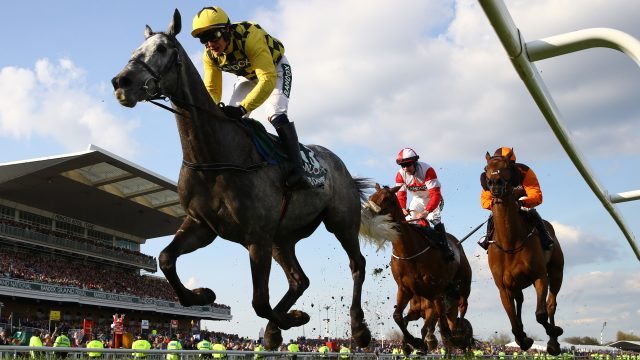
The Grand National has implemented several new safety measures for the 2024 race after a horse suffered a fatal fall in the famous race at Aintree last year.
Hill Sixteen died of a broken neck after falling at the first fence in 2023 and was one of four horses who died during the three-day National festival. The start of last year’s race was delayed by 14 minutes due to protests by animal rights activists.
In the wake of the deaths, campaigners called for jump racing to be banned and for “much more stringent” safety measures to be put in place for the sport, said The Guardian.
Aintree appears to have heeded the calls, implementing a number of changes to the race, including reducing the number of runners from 40 to 34 horses, moving the start time forward from 5.15pm to 4pm to improve the ground, and cutting the distance to the first fence to ensure a slower speed for the first jump.
Critics look for ‘the slightest opening’
Few sporting events “capture the public’s imagination like the Grand National”, said ITV Racing presenter Ed Chamberlin in the Daily Mail. But “let’s be realistic”, he said. “After last year’s demonstration and the focus on horse welfare, some might say it is the biggest 10 minutes for the sport in a very long time.” And critics of the sport “will be looking for the slightest opening to run through”.
The race organisers have done a “great job” with the new safety measures, Chamberlin said, realising they “could not afford to sit still like the circus”. Instead they “listened, took on board expert advice and self-regulated”. Now we will have to see “how the changes that have been made pan out”.
There is “always more to do” to improve the safety of horses in the Grand National, said James Given, head of equine safety at the British Horseracing Authority (BHA), speaking to the BBC this week. However, he said that while they were always trying to improve safety, “all sport has inherent risk in it”. He described the changes as a “balance between taking away the essence, the nature of the race and balancing what safety we can at the same time”.
Britons don’t approve of racing, say activists
Regardless of the safety changes, the public have already been “convinced” that they “don’t want racing to be part of the fabric of British culture” after the public debate over racing in the wake of last year’s Grand National. That’s the view of Nathan McGovern, a spokesperson for Animal Rising, the activist group that interrupted the race last year.
The group said it had no plans to interrupt the race this year, noting that attendance at Aintree has been steadily falling and polling found high disapproval rates for the sport.
“YouGov’s current figures on horse racing are around a 47% disapproval rating and only a 23% approval rating,” McGovern told The Guardian, “and those numbers speak for themselves.”
UK’s most famous horse race brings in new welfare measures amid increased scrutiny






